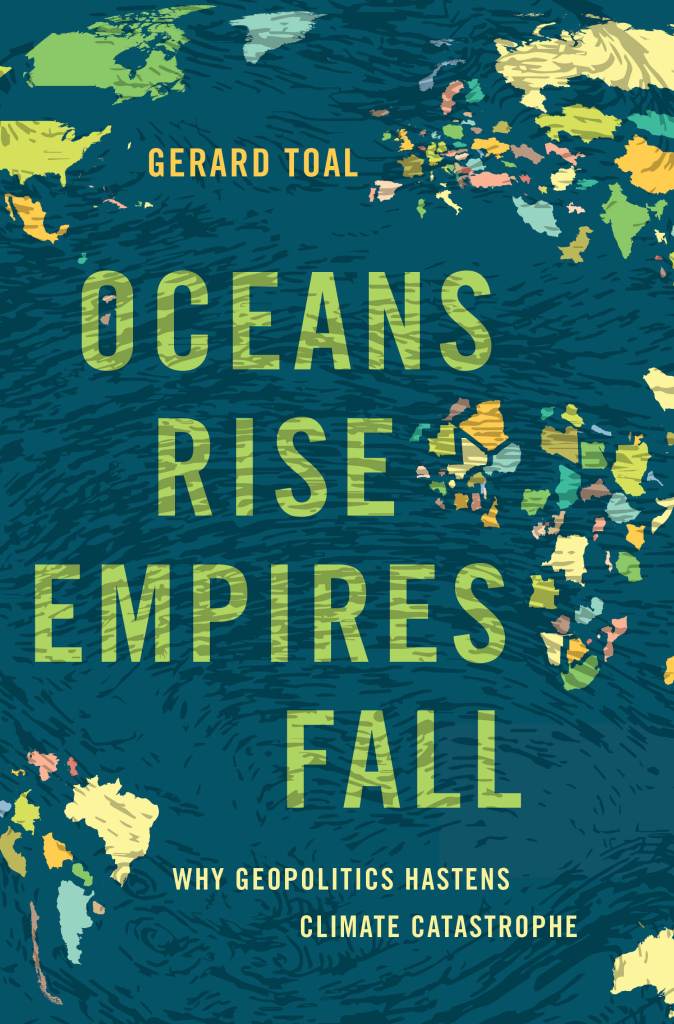Oceans Rise Empires Fall is scheduled for publication by Oxford University Press on 6 June 2024.

It evolved considerably in the process of writing. Here’s the final table of contents:
Introduction: Rising Threats
1. Geopolitics All Around
2. Grounding Geopolitics
3. Making Geopolitics Critical
4. Territorial Anxieties
5. Missions and Emissions
6. Higher Further Faster
7. Geopolitical Condition Red
Conclusion: Uncharted Territory
Here’s a few distinguishing features of the book:
The book is written for a general audience, not for professors but for their younger students and all interested in the general intersection of geopolitics and climate change.
The subtitle of the book — why geopolitics hastens climate catastrophe — conveys the general argument. I make this argument by spending some time specifying the various meanings of geopolitics, and by underscoring its connections to struggles over space and earthly resources by major powers. Thus, this is not a book that remains fixated on the terms of contemporary geopolitics but one that looks at the emergence of the term, and crucially, at the practices that it names.
There are three concepts that I use to identify these practices — geopolitical fields, geopolitical cultures and geo-spatial revolutions — and I develop the argument by showing how these practices are part of a broader modernity that has created our current pathway to climate catastrophe.
I use classic geopolitical concepts, like lebensraum, and thinkers like Ratzel and Halford Mackinder, as a way into the argument that geopolitics is a form of geo-ecological imperialism. In particular I use the writings of Halford Mackinder as a way into this argument, and how geopolitics as it came to be conceptualized in the early twentieth century had geo-ecological anxieties about food and land and race at its center.
I put considerable effort into making it an accessible and pleasurable read. I was mindful that the book will be an audio book so I wanted it to be quickly comprehensible and not verbose. Others can judge if I have succeeded or not.
It is not an IR or Political Science book: its political geography. Don’t expect an engagement with that tradition which has historically managed to ignore the Earth and our massive interdependencies and exposures on a dynamic planet.
I learned a lot writing the book, and tore up a lot of text. It’s a relatively short 68,000 words in total.
The subject matter of the book is topical and, yes it is, depressing. I didn’t want to be alarmist but the empirical facts should freak us out, and drive us to abandon geopolitical gamesmanship at this stage in the climate emergency.
Fittingly, the book was finally delivered to the publisher on the day that millions of people on the east coast of the United States were forced to breath in Canadian territory in the form of particulate matter from airborne burning forests. Lungfulls of a changing planet, the new uncharted territorial condition in our bodies…
